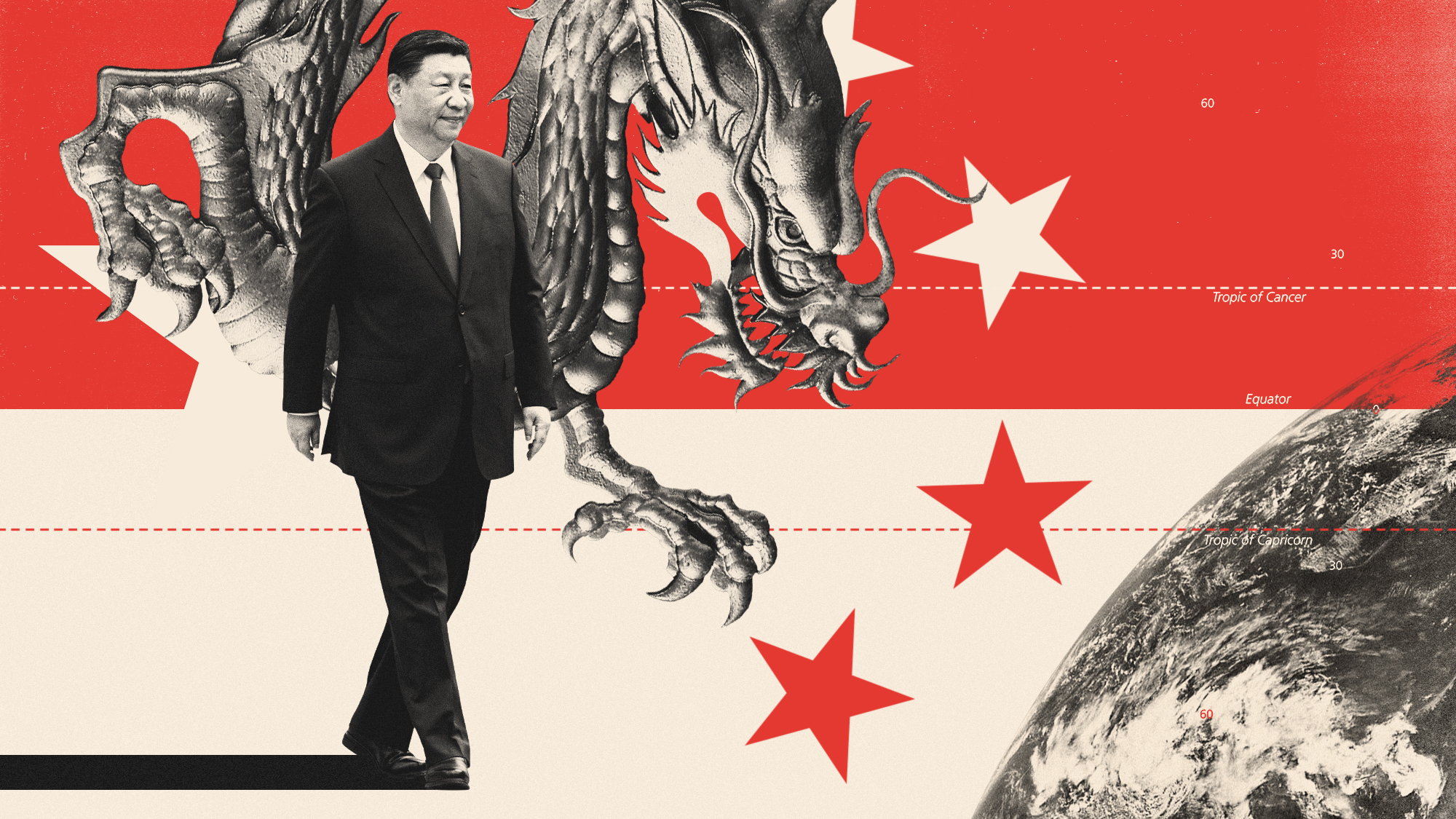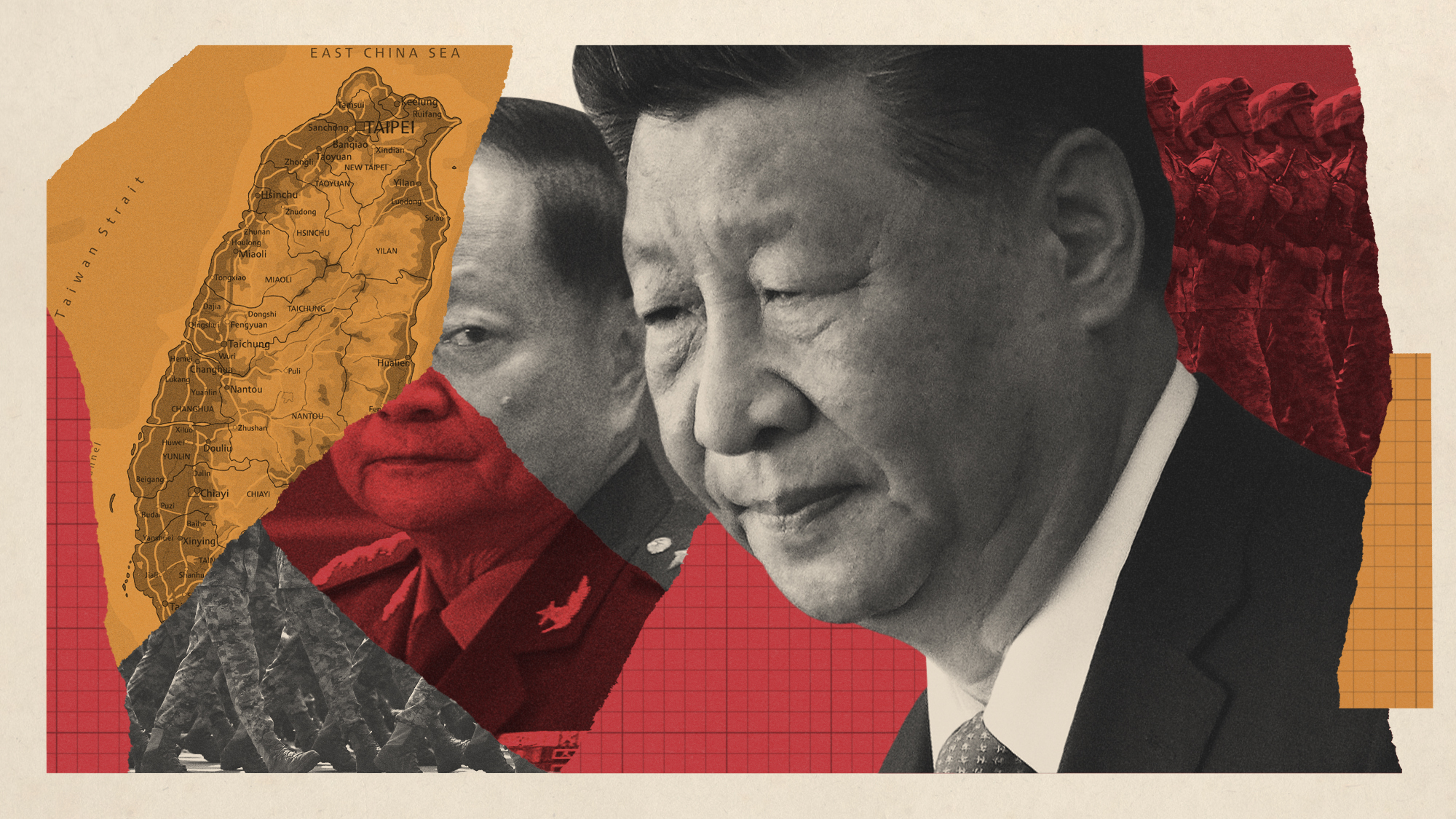Is China winning the Global South?
US leaders say America needs to step up


A free daily email with the biggest news stories of the day – and the best features from TheWeek.com
You are now subscribed
Your newsletter sign-up was successful
China is "forging ties in the Global South," said The Washington Post, making inroads with countries in Africa, Asia and Latin America whose leaders increasingly seek an "alternative to Western hegemony" led by America and Europe. Beijing has increased its joint military drills with countries like Tanzania and Mozambique, and has sought to expand the U.N. Security Council to include the developing world. It's all part of China's attempt to achieve "greater legitimacy on the global stage."
Those efforts are boosting China's standing. "In a lot of the capitals around the world," Stanford University's Oriana Skylar Mastro told the Post, "they're now thinking first of Beijing, and then of Washington."
"This isn't about authoritarianism versus democracy," David P. Goldman said at The Asia Times. It's about commerce and influence. Beijing has "doubled exports to the Global South" since the beginning of the COVID pandemic, and those exports are going to democracies like India. The goal? "To make the world dependent on Chinese technology and supply chains."
The Week
Escape your echo chamber. Get the facts behind the news, plus analysis from multiple perspectives.

Sign up for The Week's Free Newsletters
From our morning news briefing to a weekly Good News Newsletter, get the best of The Week delivered directly to your inbox.
From our morning news briefing to a weekly Good News Newsletter, get the best of The Week delivered directly to your inbox.
What did the commentators say?
Chinese firms are expanding to the Global South "with startling speed," said The Economist. Those businesses are "building factories in countries from Malaysia to Morocco," and they're also pursuing the "5 billion consumers who live in the rest of the developing world." That growth offers "uncomfortable lessons" for the West, which has increasingly raised trade barriers to Chinese goods. China is now "reaping the rewards" of sticking with globalization. "As the West has turned inward, China and the rest of the emerging world have drawn closer."
"The Chinese charm offensive is working," Gabriele Manca said at The Diplomat, helped along by a combination of "economic influence, soft power, political pressure, and diplomatic initiatives." That work is also forward-thinking: By 2100, "eight out of 10 people will live in Asia or Africa." That shift in population will inevitably "reshape the global economic and political order." New York is the "quintessential city of the current era of globalization" that has been shaped by Western countries. Now China is offering a way forward to those "left out of today's globalization benefits."
What next?
There is a class element to all of this. A survey of 35 countries found that most residents of "middle-income countries" — like those found in the Global South — see China favorably, said Pew Research Center. (The favorable views were highest in Thailand, Kenya and Bangladesh.) In high-income countries, however, the vast majority of respondents see China unfavorably. Those views are more divided, though, in the Asia-Pacific where China has simmering territorial disputes with its neighbors.
American leaders acknowledge that China has "outpaced" the U.S. in the Global South, said The Washington Post. "We need to do more," Deputy Secretary of State Kurt Campbell told the Senate Foreign Relations Committee. The goal for U.S. officials is to make sure the planetary playing field doesn't go uncontested. "We want to help ensure that [countries in the Global South] have a choice," another State Department official said to The Atlantic Council in February, "and that they can make their decisions free from coercion."
A free daily email with the biggest news stories of the day – and the best features from TheWeek.com
Joel Mathis is a writer with 30 years of newspaper and online journalism experience. His work also regularly appears in National Geographic and The Kansas City Star. His awards include best online commentary at the Online News Association and (twice) at the City and Regional Magazine Association.
-
 Crisis in Cuba: a ‘golden opportunity’ for Washington?
Crisis in Cuba: a ‘golden opportunity’ for Washington?Talking Point The Trump administration is applying the pressure, and with Latin America swinging to the right, Havana is becoming more ‘politically isolated’
-
 5 thoroughly redacted cartoons about Pam Bondi protecting predators
5 thoroughly redacted cartoons about Pam Bondi protecting predatorsCartoons Artists take on the real victim, types of protection, and more
-
 Palestine Action and the trouble with defining terrorism
Palestine Action and the trouble with defining terrorismIn the Spotlight The issues with proscribing the group ‘became apparent as soon as the police began putting it into practice’
-
 Witkoff and Kushner tackle Ukraine, Iran in Geneva
Witkoff and Kushner tackle Ukraine, Iran in GenevaSpeed Read Steve Witkoff and Jared Kushner held negotiations aimed at securing a nuclear deal with Iran and an end to Russia’s war in Ukraine
-
 How are Democrats turning DOJ lemons into partisan lemonade?
How are Democrats turning DOJ lemons into partisan lemonade?TODAY’S BIG QUESTION As the Trump administration continues to try — and fail — at indicting its political enemies, Democratic lawmakers have begun seizing the moment for themselves
-
 How did ‘wine moms’ become the face of anti-ICE protests?
How did ‘wine moms’ become the face of anti-ICE protests?Today’s Big Question Women lead the resistance to Trump’s deportations
-
 The UK expands its Hong Kong visa scheme
The UK expands its Hong Kong visa schemeThe Explainer Around 26,000 additional arrivals expected in the UK as government widens eligibility in response to crackdown on rights in former colony
-
 ‘Hong Kong is stable because it has been muzzled’
‘Hong Kong is stable because it has been muzzled’Instant Opinion Opinion, comment and editorials of the day
-
 How are Democrats trying to reform ICE?
How are Democrats trying to reform ICE?Today’s Big Question Democratic leadership has put forth several demands for the agency
-
 What do Xi’s military purges mean for Taiwan?
What do Xi’s military purges mean for Taiwan?Today’s Big Question Analysts say China’s leader is still focused on reunification
-
 Why is Tulsi Gabbard trying to relitigate the 2020 election now?
Why is Tulsi Gabbard trying to relitigate the 2020 election now?Today's Big Question Trump has never conceded his loss that year
